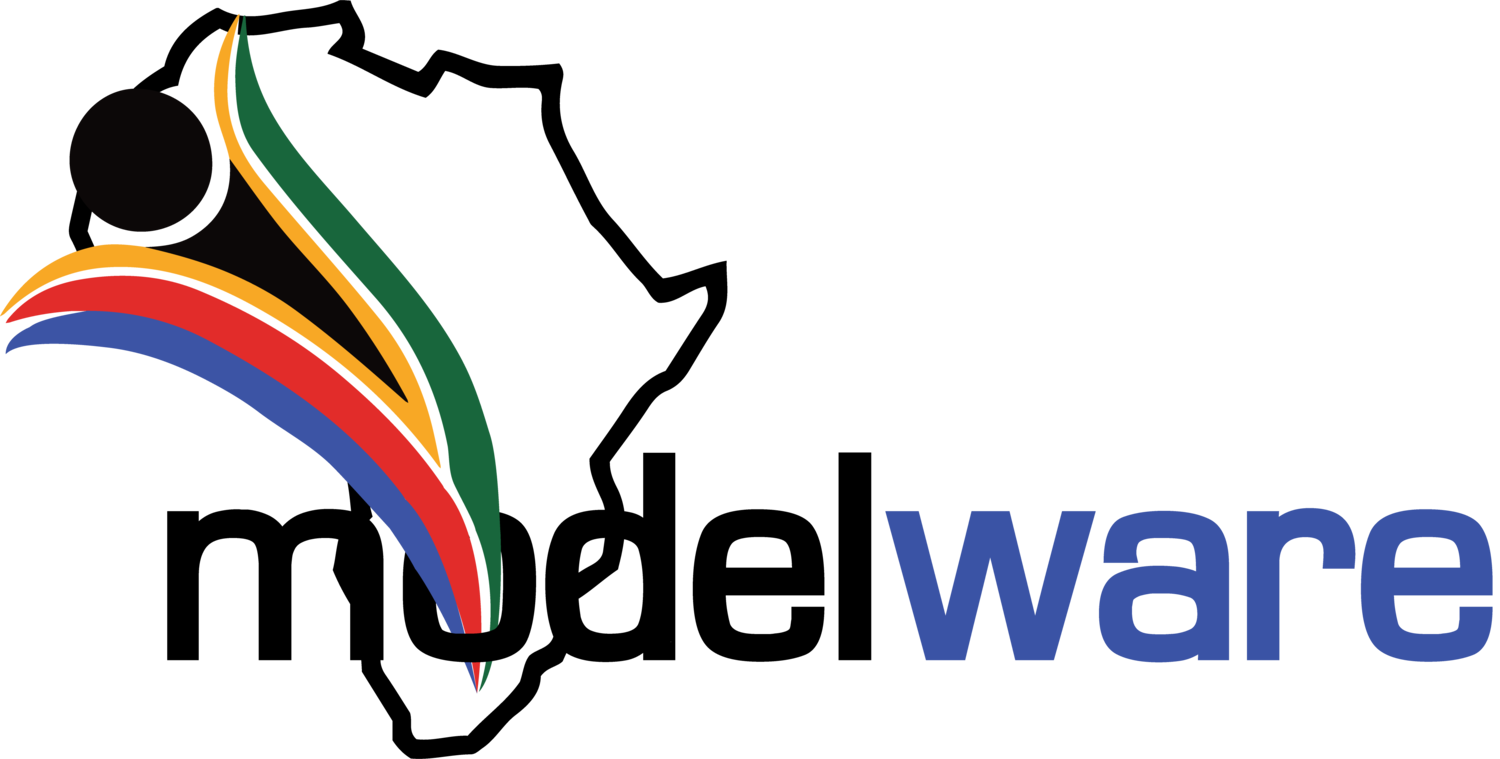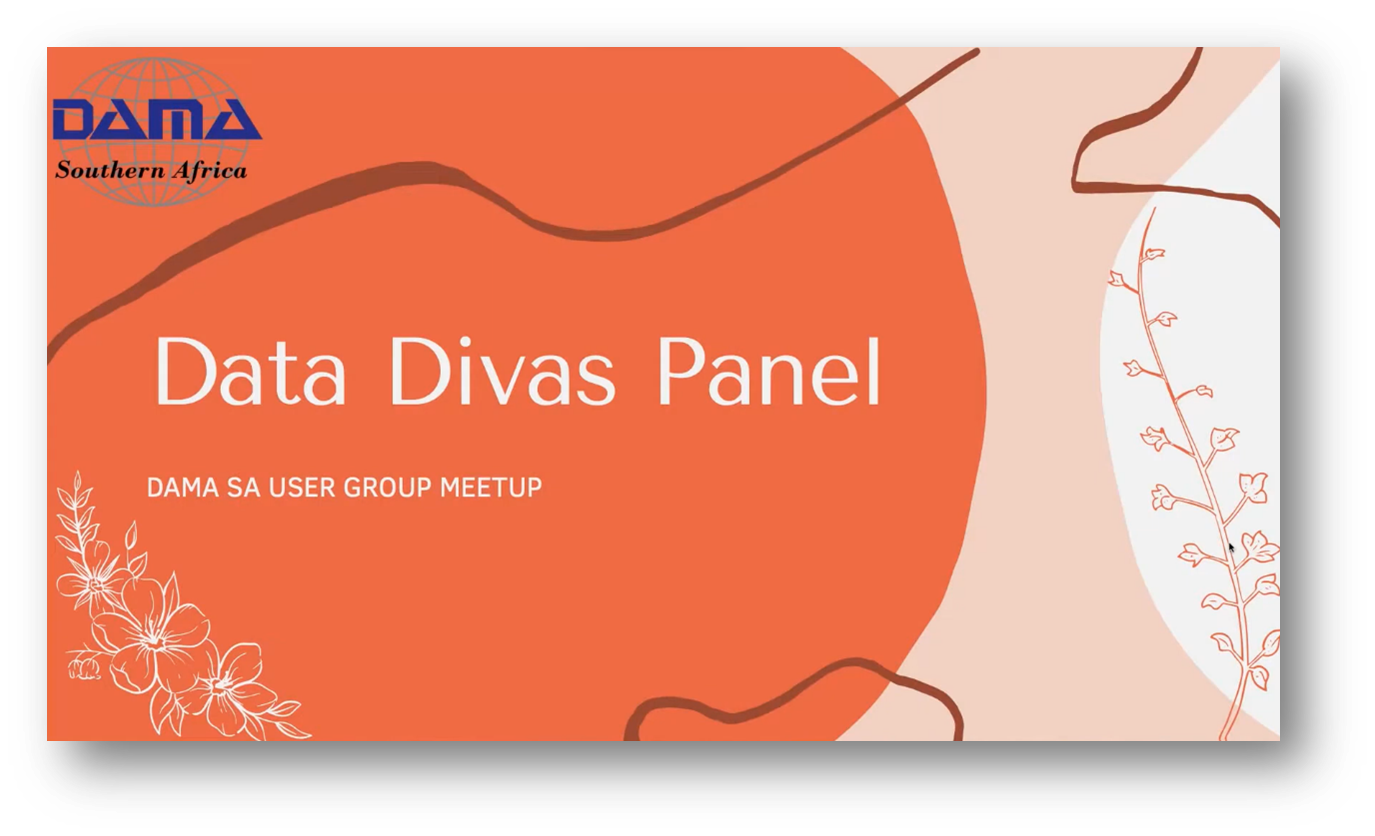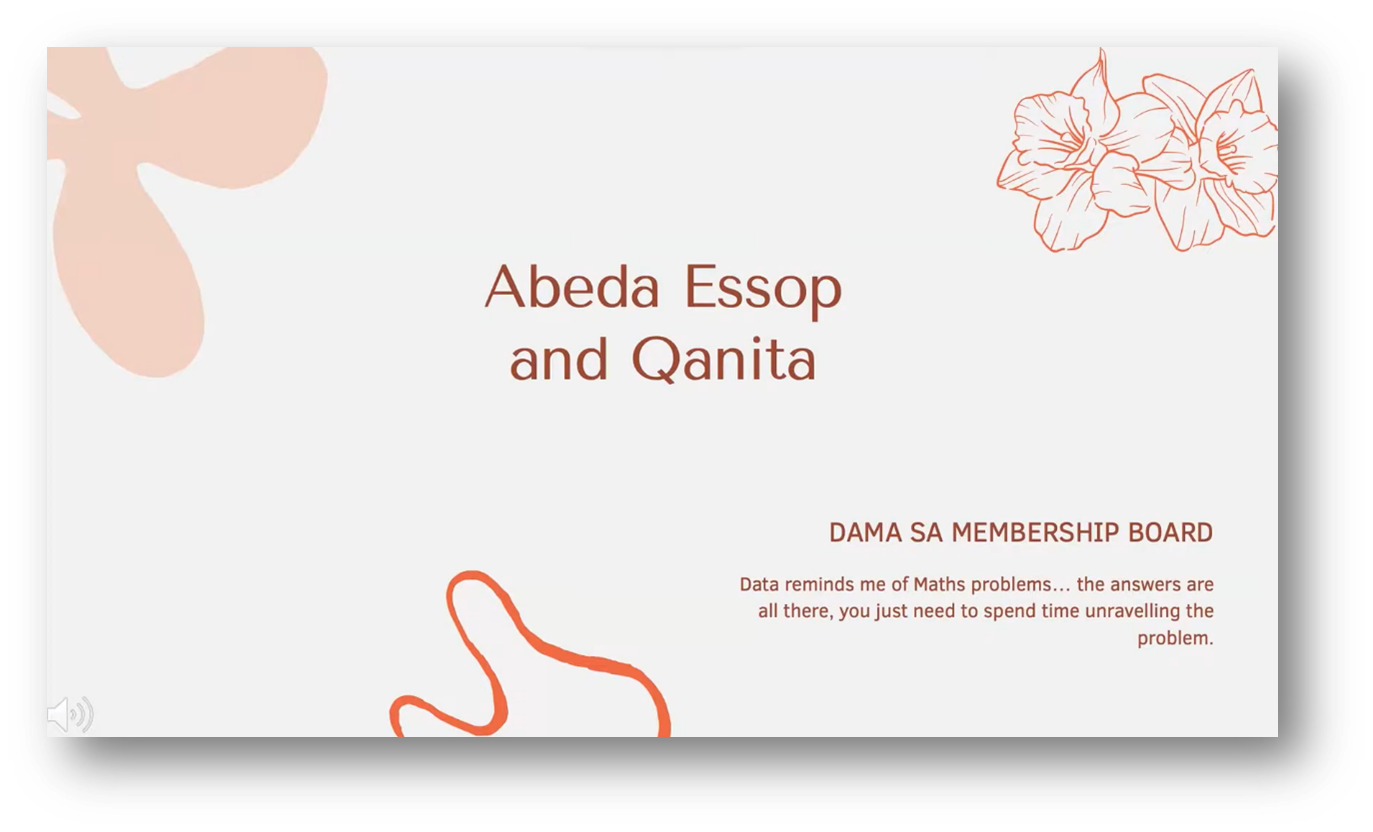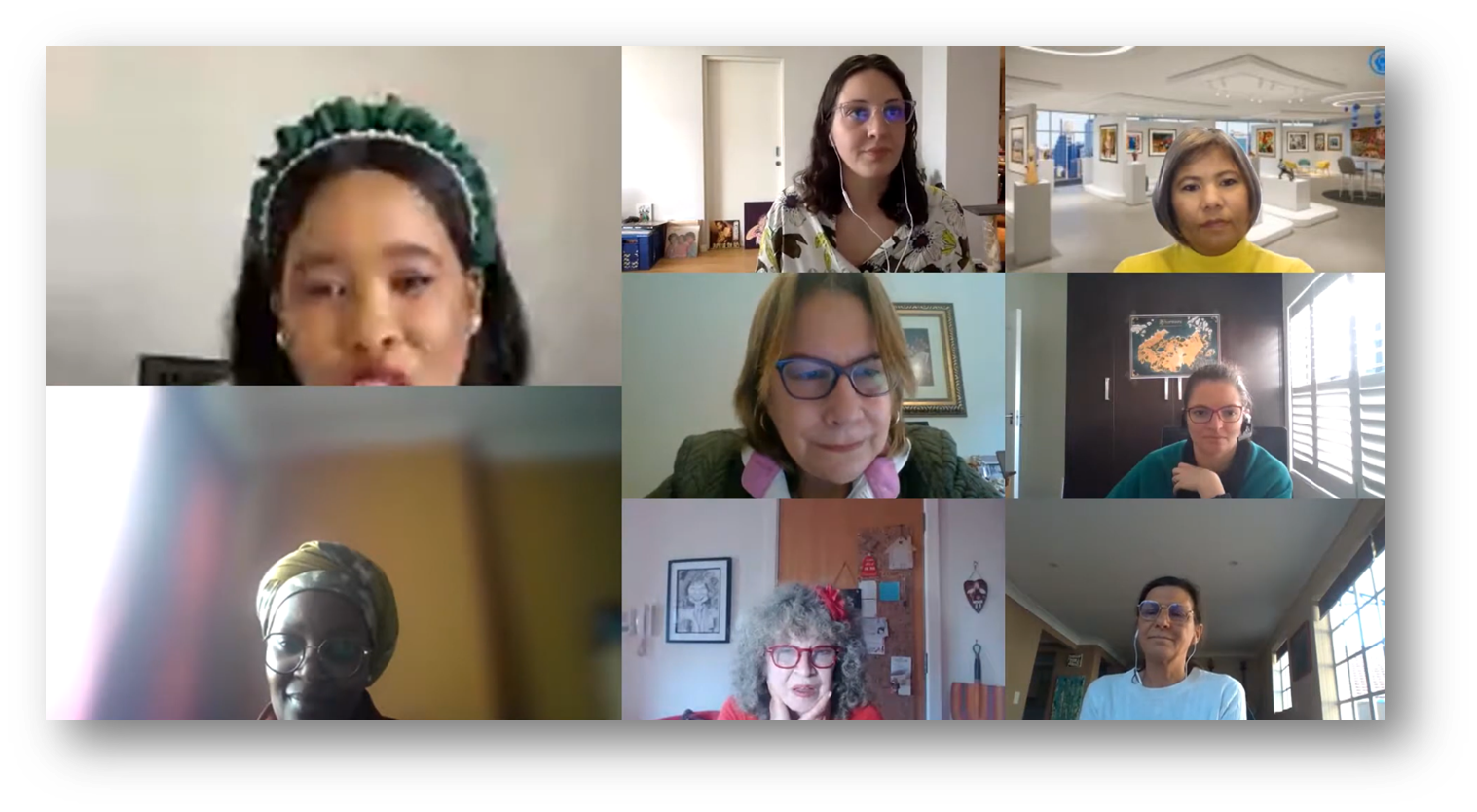Data Divas Panel
Executive Summary
This webinar covers the DAMA SA Women's Day celebrations. “The Data Divas” covers personal and professional growth topics, such as overcoming challenges as a woman in a male-dominated industry, strategies for dealing with “mansplaining,” and balancing work and family life. The importance of data literacy and education, diversity and equality, and the struggles of receiving help and pursuing dreams as a mother are also discussed. The webinar concludes by emphasising the importance of family, work-life balance, and fulfilling one's purpose, with an overall theme of women's empowerment and authenticity.
Webinar Details
Title: DAMA SA User Group Monthly Meeting DATA DIVAS
Date: 20 October 2021
Presenter: Debbie Diesel
Meetup Group: DAMA SA User Group
Write-up Author: Howard Diesel
Contents
Women's Day in South Africa and Celebrating Women
Introduction to Business Intelligence Analysts
Introductions of Data Professionals at a Conference
Introductions of Diana Joseph and Kholofelo Mgodi as Data Divas
Making a Difference in the Community
Corporative Data Warehousing and Unique Code Client
Navigating Discomfort and Authenticity in Professional Growth
Overcoming Challenges as a Woman in a Male-Dominated Industry
Empowerment and Persistence for Women in Business
Women in IT and Data fields
Strategies for Dealing with Mansplaining
Teaching People How to Treat Us
Career and Personal Development
Strategies for Personal and Professional Growth
Self-Acceptance and Data Management Fundamentals
Balancing Family and Career
Struggles of Receiving Help and Pursuing Dreams as a Mother
Time Management and Self-awareness
Balancing Work and Family Life
Gender Disparities in Data Management
Data Literacy and Education
Importance of Data Literacy
Encouraging Exploration and Study in the Business World
Understanding Data and Information Strategy
Data and Empathy in Education
Women's Empowerment and Authenticity
Diversity and Equality in the Data World
Women's Day in South Africa and Celebrating Women
Debbie Diesel is excited to present a special diva panel, highlighting women in data and the significance of their presence at the table. Women's Day in South Africa originated from a March on August 9, 1956, where Lillian Ngoyi, Sophia Williams De Bruyn, Rahima Moosa, and Helen Joseph stood up to get the petitions. Women's Day is a celebration of these trailblazers for women's rights in South Africa, and the whole month of August is dedicated to celebrating women. A powerful and strong Zulu saying, "You strike a woman, you strike a rock." Veronica Diesel, an education director, previous high school teacher, and promoter of the data management certification program, introduced herself as Howard's wife, Debbie's mom, director of Modelware Systems, and a part of the diva panel.
Figure 1 Data Divas Panel Introduction Slide
Figure 2 Why we celebrate Women's Day in South Africa
Figure 3 Speaker: Veronica Diesel
Introduction to Business Intelligence Analysts
Ncumisa Hlapo and Abeda Essop are seasoned data professionals with extensive experience in the field. Ncumisa is a business intelligence analyst in the banking industry, hosting a talk to inspire young girls to pursue careers in data analytics. With 20 years in the industry, Abeda has focused on data for the last eight or nine years, specialising in ETL and data migrations.
Figure 4 Speaker: Ncumisa Hlapo
Figure 5 Speaker: Abeda Essop
Introductions of Data Professionals at a Conference
Estie Boshoff is a data management consultant who is passionate about working with data and plans to work on projects in every knowledge area in the field. Marita Peralta, from Peru, has been involved in the data ribbon world since 1998, transitioned from marketing to information management and technology, and now runs a company called Cyclist Group that helps Peruvian companies improve their operative model with data-driven business. Marita emphasises the importance of love as a force for cooperation and solving global issues.
Figure 6 Speaker: Estie Boshoff
Figure 7 Speaker: Marita Huaman Peralta
Introductions of Diana Joseph and Kholofelo Mgodi as Data Divas
Diana Joseph is a 73-year-old data diva with over two decades of experience in data management. She is passionate about data quality management, data governance, and education. Recently, she took two CDNP exams and is enthusiastic about sharing her knowledge with others. Kholofelo Mgodi, on the other hand, is a data diva who studied econometrics in university but found herself pulled into the IT and data space. She believes in continuous learning and creating networks to share knowledge and make an impact. As a person of colour, she is excited to be in this space.
Figure 8 Speaker: Diana Joseph
Figure 9 Speaker: KholoFelo Mgodi
Making a Difference in the Community
This initiative aims to educate people about the importance of staying up-to-date with information technology. The goal is not just to give people a fish but to teach them how to fish by providing access to the necessary resources and knowledge. The initiative seeks to inspire individuals to make a difference in their community and country by finding their voice and a seat at the table through hard work and learning. The program also focuses on bringing younger children from tertiary and high school to see the possibilities in the technology field. Teamwork and learning from others with experience are emphasised, and there is great excitement and honour in creating change.
Corporative Data Warehousing and Unique Code Client
Marita stresses the importance of utilising a unique code client to identify Telefonica's customers and the need to communicate the project's progress to board members. She emphasised her passion for the world of data and the collaborative efforts with marketing and IT personnel. Marita highlights the necessity of learning, working hard, and effective communication in gaining a seat at the table in the company. Another individual added to the discussion, pointing out the extra effort women may need to put in to gain trust and recognition in data management. Ncumisa advises women to be comfortable with discomfort and confidently present facts to support their ideas and initiatives.
Figure 10 Panel of Speakers
Navigating Discomfort and Authenticity in Professional Growth
Embracing the discomfort and being comfortable with it is crucial for professional growth, especially when working with data and implementing new ideas. Authenticity is also essential in leadership, as it can increase confidence, joy, and the ability to find one's voice in professional environments. Bringing one's true self to the table is crucial to making impactful organisational changes.
Overcoming Challenges as a Woman in a Male-Dominated Industry
Ncumisa emphasises the key to success is executing tasks that yield results and joy. She highlights the importance of authenticity and finding one's voice to make a difference. Additionally, Ncumisa emphasises the need for women to support each other in male-dominated industries to overcome challenges, as demonstrated by the speaker's experience in the data world. Kholofelo concludes that persistence, self-motivation, and continuous self-empowerment are crucial in overcoming challenges.
Empowerment and Persistence for Women in Business
In the business world, having facts to support your presentation and giving substance and credibility to your ideas is important. Building networks with men can also be beneficial for advancing in business, using them as stepping stones for learning and development. Educating other women with the knowledge gained from these networks can also be useful. Additionally, it is important to use the power of femininity for success and to speak up and express interest and thoughts for advancement. Persistence and determination are also key in pursuing a seat at the table and being taken seriously in business.
Women in IT and Data fields
Debbie encourages individuals to speak their minds and find their voice. Diana highlights the significance of understanding oneself and values in gaining strength. Additionally, she sheds light on the contribution of women in the tech field during the 40s, 50s, and 60s, despite being in a male-dominated industry. Diana mentions interviews and being asked about working in a "man's world" and how she felt. She notes that she was part of an all-women team, emphasising that a woman's passion, ability, and detail-oriented nature made them naturally successful.
Strategies for Dealing with Mansplaining
“Mansplaining” is a phenomenon where a man explains something to a woman in a condescending or oversimplified manner, even when the woman already knows the information. People who experience mansplaining often struggle with how to react to it, oscillating between conveying displeasure through body language and challenging it with facts and logic. In this case, Debbie has personally experienced mansplaining frequently. She acknowledges the societal pressure to be kind and not hurt male egos but also believes in standing up against disrespect and condescension due to their upbringing by a no-nonsense single mother.
Teaching People How to Treat Us
Abeda highlights the need to understand corporate politics, overcome obstacles in a male-dominated environment, prioritise honesty in communication, address condescension and 'mansplaining', teach others how to treat us and empower future data professionals. These are essential skills for anyone looking to succeed in business, especially in a tech-driven industry where gender bias and communication barriers are still prevalent. By fostering a culture of respect, inclusivity, and mentorship, we can create a better future for all data professionals while breaking down the barriers that hold individuals back.
Career and Personal Development
Diana highlights the importance of finding one's passion and setting goals in the data space. She encourages individuals to continue studying and learning to achieve their goals. The value of listening, researching, attending meetings, and learning from others' experiences is also emphasised. The significance of defining personal career strategy and setting objectives to progress in one's career and achieve long-term goals is discussed.
Strategies for Personal and Professional Growth
Diana emphasises the importance of a long-term data management plan, artificial intelligence, and machine learning training in this personal growth strategy. She advises creating a plan of action to adapt to changes in technology and industries over time, especially for professionals in the data field. Veronica shares thoughts on self-comparison and imposter syndrome, emphasising the significance of acknowledging individual strengths and contributions, promoting a teachable spirit, and pursuing personal passions without weighing oneself down by constant comparison to others. Additionally, she mentions living in another individual's shadow, highlighting the common experience of feeling inadequate when comparing oneself to someone with significantly more knowledge and experience in a particular area.
Self-Acceptance and Data Management Fundamentals
The importance of data management fundamentals is increasing in every industry. As someone who did not start their career in the data space, Veronica feels responsible for informing others about data management and its significance. Data is an entire system that needs to be understood, and there are limitations in areas like machine learning and data science if companies do not have proper master data management. Therefore, data is considered a whole ecosystem, and everyone in the data space is essential in making it function. Self-acceptance and kindness are emphasised, as it is advised not to compare oneself to others but to focus on personal growth.
Balancing Family and Career
Mothers are often seen as superpowers who balance family and career without any visible struggle. However, this concept of juggling can lead to "mom guilt," which is the guilt associated with pursuing personal aspirations and dreams. Overcoming this guilt requires honesty to identify contributing factors and create a plan to balance family and career. The importance of addressing and overcoming "mom guilt" is emphasised by the speaker's personal experiences of starting a family at the height of her career, which presented many challenges regarding work and happiness.
Struggles of Receiving Help and Pursuing Dreams as a Mother
As a mother, Ncumisa notes the importance of being honest with your partner and family about needing help, even if it means overcoming feelings of guilt. Letting go of "mom guilt" is necessary for gaining clarity and pursuing personal goals. Be honest with yourself about what you can and cannot do, and remember that you can have everything you want, but not all at once. Communicate your plans and pursuits with your support system, allowing them to help you achieve your goals.
Time Management and Self-awareness
Kholofelo emphasises the importance of being intentional about how we spend our time and identifying our strengths, weaknesses, and goals. This includes setting timelines for personal, spiritual, family, and work-related pursuits and being mindful of allocating our time to them. Love and time are essential to our endeavours, and we should strive to manifest love through the time we spend. To make the most of our time, we should set realistic schedules and goals, ensuring they are feasible.
Balancing Work and Family Life
The significance of setting deliberate goals for personal and professional growth while avoiding comparisons with others is emphasised. Women were encouraged to focus on their own journeys and prioritise personal well-being, as burnout is a potential risk. Diana shared her experience of sacrificing family and health for work, warning others to prioritise balance. There was a collective understanding and appreciation for the advice shared, emphasising finding a balance between work, spiritual health, and family. Diana recommends prioritising family, friends, and personal happiness and advises young people to find their mission while balancing work with personal fulfilment.
Gender Disparities in Data Management
Kamal acknowledges women's challenges in the field and encourages them to give more power and attention to the cause. He emphasised the unique perspective and strengths that women bring to the field. A question was raised about why women excel in data governance, suggesting that women are better at seeing the bigger picture and understanding the multi-dimensional nature of data management.
Data Literacy and Education
Data governance is an essential aspect of managing data effectively. As data management continues to evolve, it is becoming increasingly important to encourage everyone to become data literate and to understand how data fits into different areas of life. Educating those who don't see themselves as data people is crucial, as is guiding those who want to learn more about data. By doing so, organisations can ensure that their data is managed effectively and that the right decisions are made based on accurate and reliable information.
Importance of Data Literacy
Data literacy is crucial for everyone, just like financial literacy. It is vital in various aspects of our lives, from financial management to technology usage. Nowadays, data is omnipresent in our daily lives, as technological devices such as smartphones provide users with extensive data on their usage patterns. Regardless of one's profession or industry, data literacy is relevant and necessary in marketing, retail, e-commerce, healthcare, or other fields. The creation of data talk sessions aims to drive data literacy, making the understanding and interpretation of data accessible to ordinary individuals. Digital platforms now allow people to read and interpret data through dashboards, making data analysis an intrinsic skill. Utilising digital banking applications, such as the FNB app, exemplifies how individuals engage with and benefit from data-driven interfaces. To become more adept in data literacy, it is essential to recognise how data relates to one's environment and explore its applications in personal and professional contexts.
Encouraging Exploration and Study in the Business World
Paul shares his wife’s experience transitioning from an accounting role to commercial management with Lufthansa, highlighting her preference for business beyond financial management. He expresses concern for her being in the business world and not recognising the importance of data as a product. Marita advises Paul on his concern for her go about understanding the business model, value proposition, customers, products, and prices to identify and understand data. She recommends exploring the industrial sector and studying relevant data attributes aligned with one's goals and personality.
Understanding Data and Information Strategy
Data is the most fundamental part of information, comparable to the atom in chemistry. The value of data sciences and data scientists is undeniable, but it's critical to translate business rules into data to achieve good performance. Understanding and utilising data can benefit everyone, regardless of gender or non-conforming gender, given its prevalence in modern technology, such as smartphones, laptops, TVs, and online shopping. This makes everyone a data producer and consumer. As a result, analysing and comprehending data is critical to being a data citizen.
Data and Empathy in Education
Each participant shared their personal experiences and passions during a discussion on education and data. The group emphasised the importance of sharing experiences to support and empower younger women, highlighting the unique learning journey and the need to avoid comparisons. Participants encouraged one another to continue learning and to reach out for help and support, focusing on empathy in all their interactions with data and people.
Women's Empowerment and Authenticity
Estie highlights the importance of empathising with individuals and understanding their business to succeed. Marita also touches on the challenges women face in male-dominated fields and the need for uplifting and empowering women in data. The appreciation of vulnerability and authenticity shared by participants is also acknowledged. Finally, the validation and empowerment of hearing other women's journeys is emphasised.
Diversity and Equality in the Data World
Ncumisa highlights the importance of diversity and equality in the data world. She has diverse experiences in data, including ETL, BI, front-end development, and business analysis, believes that data can play a crucial role in various passions, such as business, healthcare, animals, and human rights. Ncumisa is excited about future projects in this area and wants to promote diversity and equality in the data world. Debbie expresses gratitude towards the women on the panel and feels privileged to have them as role models.
If you would like to join the discussion, please visit our community platform, the Data Professional Expedition.
Additionally, if you would like to be a guest speaker on a future webinar, kindly contact Debbie (social@modelwaresystems.com)
Don’t forget to join our exciting LinkedIn and Meetup data communities not to miss out!











